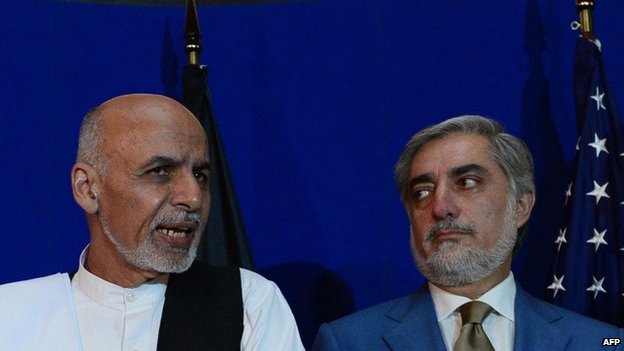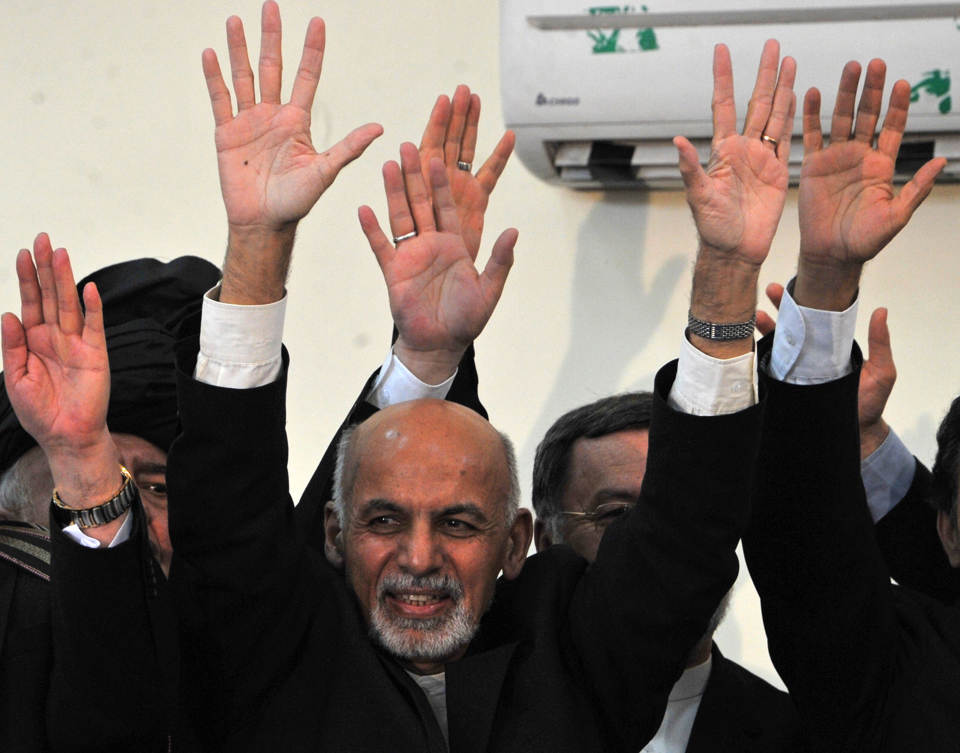Ashraf Ghani, a one-time US-based academic, was sworn in as the new president of Afghanistan on Monday
Ashraf Ghani, a one-time US-based academic, was sworn in as the new president of Afghanistan on Monday.
Afghan dignitaries gathered for the ceremony in the presidential palace as helicopters buzzed overhead ferrying in foreign guests.
The event marked the country's first democratic transfer of power -- a benchmark seen by international donors as a key legacy of the costly military and civilian intervention since the fall of the Taliban regime in 2001.
"I will abide by the constitution and other laws and protect their implementation," Ghani said in an oath administered by the chief justice.
 Ghani succeeds President Hamid Karzai after a bitter three-month standoff over disputed election results that fuelled the insurgency and worsened Afghanistan's dire economic outlook.
Ghani succeeds President Hamid Karzai after a bitter three-month standoff over disputed election results that fuelled the insurgency and worsened Afghanistan's dire economic outlook.
Both Ghani and his poll rival Abdullah Abdullah claimed to have won the fraud-tainted June 14 election, plunging Afghanistan into a crisis that threatened to trigger nationwide unrest.
Under pressure, the two candidates eventually agreed to form a "national unity government", and Ghani was declared president after an audit of nearly eight million ballot papers.
Abdullah was also sworn in on Monday as chief executive, a new role similar to a prime minister, in a government structure far different to Karzai's all-powerful presidency.
John Podesta, counselor to President Barack Obama, led a 10-strong US delegation, with President Mamnoon Hussain representing Pakistan and Vice President Hamid Ansari travelling from India. Many other countries, including Britain and France, were represented only by their ambassadors in Kabul, while China sent Yin Weimin, minister of human resources.
On the eve of the swearing-in, another small bomb hidden in a military vehicle exploded outside the presidential palace complex, injuring the driver.